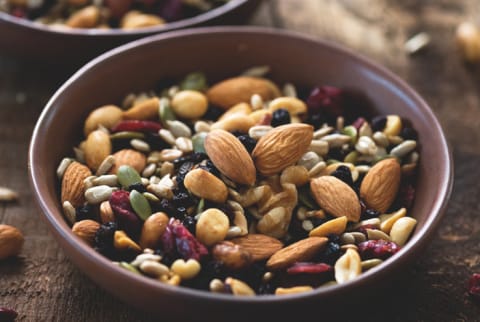Advertisement

Fat’s gotten a bad rap: some say it makes us fat, contributes to heart disease, and leads to diabesity. Others claim saturated fat is bad but vegetable oils are good … I could go on, but I think you know what I’m talking about.
The truth? None of these beliefs about fat are true. In my latest book, Eat Fat, Get Thin, I combined the latest research with several decades of empirical evidence working with patients to prove what I’ve long known: the right fats can help you become lean, healthy, and vibrant.
There’s a lot to say about fat, but for now, let’s look at these eight take-home fat facts.
1. Sugar, not fat, makes you fat.
Consuming a lot of sugar means your cells become numb to insulin’s “call.” Your body pumps out more and more insulin to pull your blood sugar levels back down. You can’t burn all the sugar you eat. Inevitably, your body stores it as fat, creating insulin resistance and overall metabolic havoc among other mayhem.
2. Dietary fat is more complex than sugar.
There are some 257 names for sugar, but despite very minor variations, they all create the same damage. Fat is more complex. We have saturated, monounsaturated, polyunsaturated, and even trans fats, not to mention subcategories within each group. Some fats are good; others neutral; and yes, a few are bad.
3. Low-fat diets tend to be heart-unhealthy, high-sugar diets.
When people eat less fat, they tend to eat more starch or sugar instead, and this actually increases their levels of the small, dense cholesterol that causes heart attacks.
4. Saturated fat is not your enemy.
A review of all the research on saturated fat published in the American Journal of Clinical Nutrition found no correlation between saturated fat and heart disease. As with all fats, quality becomes key here. The fats in a fast-food bacon feedlot cheeseburger will have an entirely different effect than saturated fat in coconut oil. Let’s stop classifying it as all the same.
5. Some fats are unhealthy.
They include trans fats and inflammatory vegetable oils.
6. Everyone benefits from more omega-3s.
About 99 percent of Americans are deficient in these critical fats. Ideal ways to get them include eating wild or sustainably raised cold-water fish, omega-3 rich eggs, and taking an omega-3 supplement.
7. Eating fat can make you lean.
Healthy cell walls made from high-quality fats are better able to metabolize insulin, which keeps blood sugar better regulated. Without proper blood sugar control, the body socks away fat for a rainy day. The right fats also increase fat burning, cut your hunger, and reduce fat storage.
8. Your brain is about 60 percent fat.
Of that percentage, the biggest portion comes from the omega-3 fat called docosahexaenoic acid (DHA). Your brain needs DHA to spark communication between cells. Easy access to high-quality fat boosts cognition, happiness, learning, and memory. In contrast, studies link a deficiency of omega-3 fatty acids to depression, anxiety, bipolar disorder, and schizophrenia.
I eat fat with every meal, and I’ve never felt better. The right fats can improve your mood, skin, hair, and nails while protecting you against type 2 diabetes, dementia, cancer, and much more.
Among my favorite sources of fat include:
- Avocados
- Nuts: walnuts, almonds, pecans, macadamia nuts, but not peanuts (one study showed a handful of nuts a day reduced death from all causes by 20 percent)
- Seeds: pumpkin, sesame, chia, hemp
- Fatty fish, including sardines, mackerel, herring, and wild salmon that are rich in omega-3 fats
- Extra-virgin olive oil (a large study showed that those who consumed 1 liter a week reduced heart attacks by 30 percent)
- Grass-fed or sustainably raised animal products (I recommend the Environmental Working Group’s Meat Eater’s Guide to eating good-quality animal products that are good for you and good for the planet)
- Extra-virgin coconut butter, which is a great plant-based source of saturated fat that has many benefits. It fuels your mitochondria, is anti-inflammatory, and doesn’t cause problems with your cholesterol. In fact, it may help resolve them.
The take-home here is that most of your fat-cell biology becomes controlled by the quality and type of the food you eat. That explains why we should eat a quality fat, whole-food diet that’s lower in refined carbohydrates, low glycemic, and high in fiber.
Want to learn more? Watch my Q&A video on Fat.
